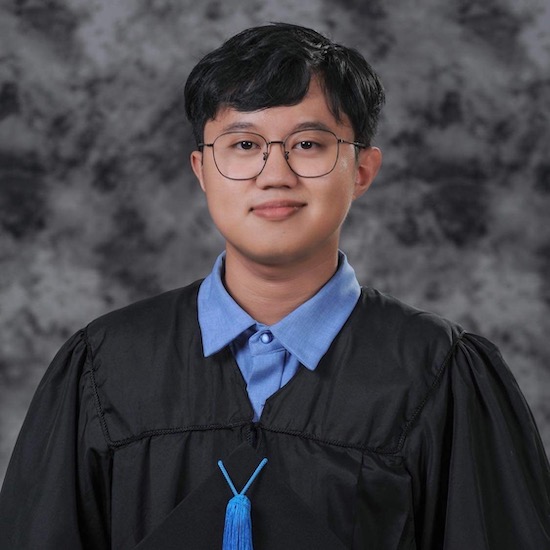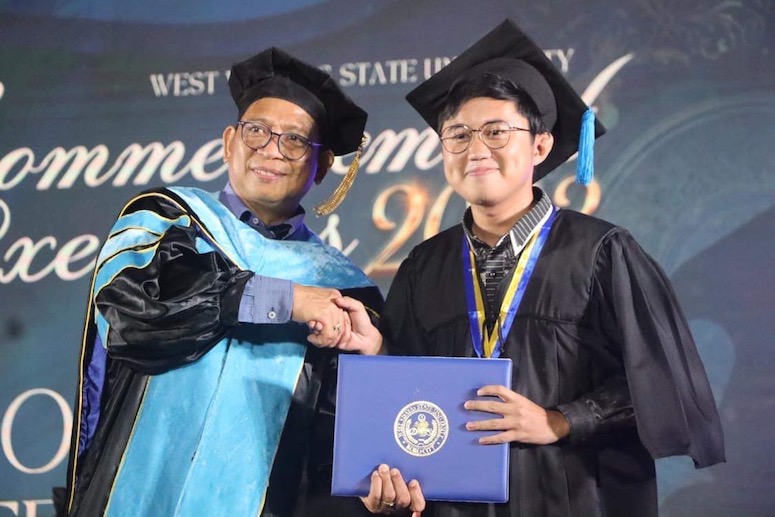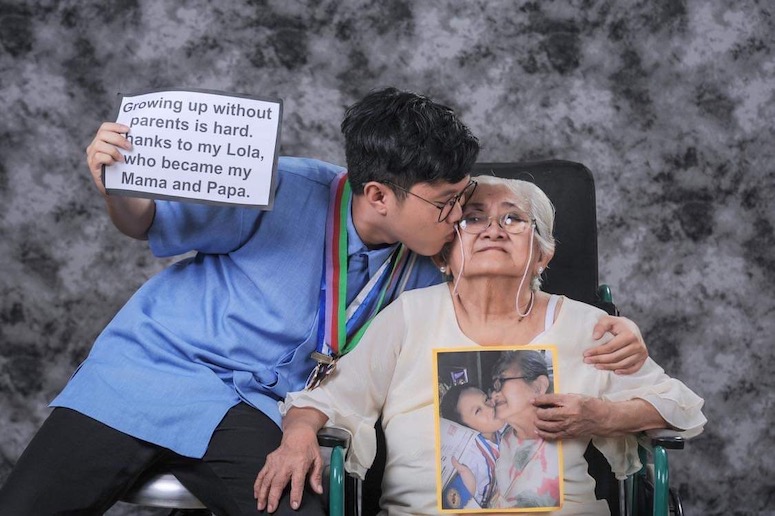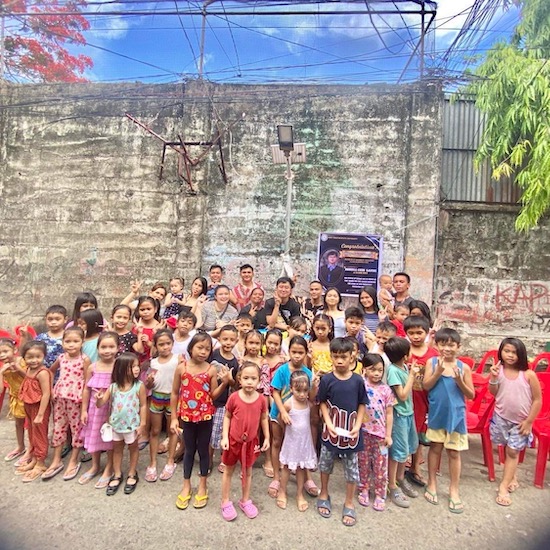Iloilo scholar shares how poverty fueled him to graduate summa cum laude in valedictory speech
Success doesn't happen overnight, they say. It's a slow and steady journey that one must crawl, run, and tumble over many times to finish victorious.
Yancy Aubrey Panugon had to do just that—walk, fall, then push himself to stand again and again—for most of his life. It became a cycle that he had to endure at an early age because of poverty and his parents' absence.
"Growing up without parents is hard," he told PhilSTAR L!fe. "I did things a child should not yet suppose to do because I had to survive."
One of the many challenges he faced as a student with barely any financial resources is his lack of "specific and conducive place to study."
"I would go from one home to another," Panugon recalled. "During my high school years, I thought of giving up my studies because of our situation."
Despite everything, the West Visayas State University (WVSU) scholar persevered, fueled by his "screaming determination and passion for learning."
Apart from that, the student-achiever found inspiration in his grandmother who, despite her partial disability, strives to provide Panugon with all the support she can give him.
"My Lola, who is semi-blind, is my motivation to do well in life. Despite growing up without parents, she did her best to be my parental figure. I owe every achievement I received to her," he told L!fe.
As great things come to those who work hard, Panugon finished a degree in Secondary Education Major in Mathematics with a grade point average of 1.10. This led him to graduate summa cum laude of his batch and the valedictorian of the entire West Visayas State University Class of 2023.
And the highflier wouldn't have done it if he had not realized early on that "collaboration overpowers competition." He talked more about this and how it helped him overcome all the challenges in his life in his valedictory speech during the WVSU College of Education commencement exercise on June 2.
Read the full transcript of Panugon's speech below.

To our visionary and hardworking University President, Dr. Joselito Villaruz; our equally diligent and dedicated vice presidents, college deans, and university officials, our esteemed speaker- Sir Roderick M. Napulan, our dear teachers who played a vital role in our academic and personal development, fellow students, supportive parents, friends, and other people who believe in us, a pleasant morning!
I also warmly welcome my batchmates who made it through this academic endeavor. We have grown through the bittersweet realities of studying during the pandemic and overcame our fair share of sorrows and joys, wins and losses, setbacks, and progress—all of which have contributed to who we are today: transformed individuals who are prepared to take on the challenges that lie ahead.
With the rise of the survival genre and post-apocalyptic narratives that depict both ill reality and core humanity, from Alice in Borderland to All of Us Are Dead consumed religiously, and our lived experiences amidst a global health crisis, I'd like to take reference from the widespread belief that college life, as they say, is designed like a survival game—a survival game in 3 levels.
The first level is survival in emotional terms. Most of us had to leave our comfort zones during college. Along the way, most of us might have felt self-doubts and constant questioning of our choices and potential, rooted in the human need to prove ourselves. We brought with us not only our personal goals and dreams but the expectations and hopes of our families; thus, fear of failure is inevitable. There is a clash of emotions as we were conditioned to adjust to a new environment, become more independent, deal with uncomfortable situations, and strive in a complex arena away from the support systems we were used to.
The second level is survival in financial terms. Although we were free of tuition fees as scholars enrolled at WVSU, there were still tons of expenses to consider, including our basic needs, school requirements, and daily expenditures amidst the price hikes and inflation that burden most struggling students and their parents or guardians. The truth is many of us are not that privileged to focus on our academics alone. Some even had to secure scholarships or side jobs to afford the price of college, as well as the cost of living.
The third level is survival in social terms. I think many would agree that in the process of immersing ourselves in WVSU, from the online to the F2F setup and the various shifts that come with it, we had gone through significant challenges in fitting in in such a diverse setting, building connections with others who used to be just small icons on google meet, and finding a sense of belonging or maybe, identity.
Indeed, we have our shared struggles and encounters from the same and different circumstances.

Although college is undeniably a survival in the ways I previously enumerated, I would like to negate that survival equates to competition. Because to survive does not necessarily mean to compete. Instead, I've learned that survival fosters collaboration rather than competition. That's how I survived life after all these years.
Now, allow me to share a piece of my story reminiscent of survival films or thriller fiction, and even drama that interests most Filipinos. But the catch is: it's a real-life experience with poverty as the formidable opponent, and I'm the unfortunate protagonist. Life threw me into a rough start. My father left without a trace when my mother discovered she was pregnant at an early age, forcing her to take all parenting responsibilities. My mother had to go to Manila to make ends meet, trying her luck for a better life. But reality hit hard like a ten-wheeler truck; the odds were not in our favor. My life had more plot holes and conflicts than Twilight Saga. Soon, I ended up living with my grandmother, who can only see with one eye, and my uncle, who is partially deaf.
Picture this scene: we all squeezed into a tiny, dimly lit home without electricity. We didn't own a bed to sleep in, a table to eat on, or even access to water. Our only light sources were candles and flashlights. In my early years, I quickly learned that having fun and enjoying things should be hard-earned. My friends from Brgy. Duran and I had to gather garbage in our populous neighborhood and search for recyclables to sell so we can buy the simple toys we so badly wanted.
During elementary school, my pocket money depended on my grandmother's luck in a game called Tong-its. If she failed to win, I would skip school to play Tetris Battle or card games that involved money, hoping to pocket a few coins for school. My 73-year-old grandma had to walk kilometers to see me whenever there were card days or PTA meetings. As a child, I was confronted with these harsh conditions head-on, but fortunately, the ending to that chapter was not a letdown as I graduated as the top student, the class valedictorian, from A. Montes I Elementary School.

My grandmother has unwavering faith in my abilities, and even though we were financially struggling, she enrolled me in Iloilo National High School. However, my high school years brought even more suffering and pain. I remember my grandma had to hold a flashlight for long hours so I could study, and when her arms grew tired, I had to learn the art of multitasking: a flashlight in one hand, the other taking messy notes on a Mara-Clara-covered notebook. Sadly, our flashlight didn't stay long, so I had to switch to a candle when working on projects—no wonder my teachers questioned why my outputs sometimes had candle wax on them.
Hope almost died like that fast-burning candle when high school put even more strain on our finances. I remember participating in quiz bees not for the love of competition but to win cash prizes, hoping to have some pocket money to survive high school and hang out with my friends at nearby fishball stands. But even then, money from those quiz bees wasn’t enough. There were times when I had less than ten pesos to sustain an entire school day. It was a silent battle, fought hard with the undying determination of my uncle and grandma through a mix of literal and figurative blood, sweat, and tears.
Our neighbors would ask why I still pursued getting an education despite our financial burdens. The answer was simple: school was my escape from the painful realities of this survival game we call life. And for a little plot twist for this particular chapter of my young life, I proudly graduated as the class salutatorian of Iloilo National High School despite all those obstacles.
Such support experiences taught me a valuable lesson: seeking help during tough times is essential because no one can navigate through challenges alone.
Following all those dark episodes, a glimmer of hope shone as things improved. I was fortunate to have teachers who generously secretly handed me extra money for school expenses. I also had classmates who kindly shared their food with me during lunchtime. Also, our humble neighborhood friends were thoughtful enough to invite me to study in their well-lit rooms. In college, I was adopted by Prof. Antoniette Cortez of the English Language Teaching Division of the College of Education who gave me the most comfortable life I could have, showing me family is indeed not by blood but by heart.
Such support experiences taught me a valuable lesson: seeking help during tough times is essential because no one can navigate through challenges alone. God brings us angels to take care of us. Now resonating deeply after what I have gone through, I can truly say that no individual is an island; it takes a community to raise a child. Collaboration triumphs over competition in the face of adversity—which is what every graduate should learn in college and life.
This time let's look at the bigger picture. Yes, I am proud to say that I am a product of collaboration. However, the system of our society was programmed for us to compete, especially when we don't have enough privilege or power. Let me share my winning entry during the Education Student Council – Photo Contest. In our country, where education should be a right but is now becoming more of a privilege, some children are left behind, struggling, and competing to access learning.
I grew up in the slums of Brgy. Veterans Village here in Iloilo City Proper. It is just one of the many underdeveloped communities where the bitter truth of life is seen and felt. In such complex cases, children value education less since they must do all kinds of manual work to survive and have other predicaments to worry about. I also had the chance to go to other far-flung communities, and there, I witnessed children who must cross from island to island to sell whatever goods they had for the day. And based on the encounters I've had, many out-of-school youth wish to have the opportunity to learn and succeed. A hard living like this exists for many children and is sadly overlooked in the grand narratives of excellence.

But there are still redeeming factors. We completed our degree in this institution free from tuition. Some of us have scholarships that got us through turbulent periods. Somehow, we've managed to get here, and yes, we have been given a rare gift—a gift of education, and with this gift comes a responsibility—to be the beacon of hope for children facing educational barriers. Let's take on this responsibility with a humble heart and a sense of purpose because we can collectively be the catalysts of change, the advocates for justice, and the architects of a more equitable and compassionate world.
Indeed, college life is a survival game of many complex conditions, but this survival has shaped us academically and fostered empathy and humanity. With this noble motivation, we can see beyond our achievements. We can better understand the plight of those less fortunate—a duty to extend our wisdom and share conversations, to bridge the gap that divides us, and to ensure that every child, regardless of their background, has access to education. Together, as new graduates of this institution, let's create a culture where collaboration overpowers competition!
And above all, let's build a society where success for every young, struggling dreamer is more of a promise or a certainty that can be delivered instead of just a one-in-a-million possibility.
You got this! I'm proud of us all and West Visayas State University! Thank you, and have a pleasant morning, everyone.


